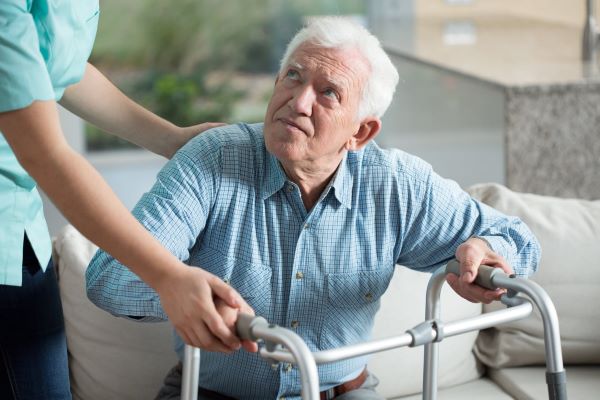CHICAGO, IL – The Centers for Medicare and Medicaid Services (CMS) is responsible for ensuring nursing homes nationwide meet the federal quality standard of care, including residents be free from abuse. CMS has a contract with state agencies that allow citations on nursing homes for any incidents of abuse.
What GAO Found
In June 2019, the U.S. Government Accountability Office (GAO) report found that from 2013 to 2017, nursing home abuse citations more than doubled, increasing from 430 reports in 2013 to 875 in 2017 and the largest increase in severe cases. There are gaps in the oversight that make it difficult to protect residents from the abuse occurring within nursing home facilities.
Specifically, the main concerns by GAO include:
- Information on abuse and perpetrator types is not readily available. CMS’s database does not allow the type of abuse or perpetrator to be identified by the agency. Specifically, CMS does not require state agencies to record abuse or perpetrator type, and even when recorded, it cannot be easily analyzed by CMS. GAO suggested that CMS require state agencies to submit data on abuse, perpetrator types, and HHS concurred.
- Facility reported incidents lack key information. Federal law requires nursing homes to self-report allegations of abuse and covered individuals to report reasonable suspicions of crimes against residents. CMS has not provided any guidance to nursing homes on what information should be included in facility-reported incidents, which contributes a lack of information to state agencies and delays in on-going investigations.
- Gaps exist in the CMS process for state agency referrals to law enforcement. There are gaps in CMS’s process for reporting incidents to law enforcement officials. These gaps may limit or delay CMS’s ability to ensure that nursing homes meet federal requirements to ensure residents are free from abuse. GAO identified issues relating to:
- Referring abuse to law enforcement in a timely manner,
- Tracking abuse referrals,
- Defining what it means to substantiate an allegation of abuse,
- And sharing information with law enforcement.
Recommendations by GAO for Executive Action
- The administrator of CMS should require that abuse and perpetrator type be submitted in CMS’s databases for deficiency, complaint, and facility-reported incident data where CMS can systematically assess trends in these data.
- The administrator of CMS should develop and guide – using a standardized form – to all state agencies on the information nursing homes and covered individuals should include on facility-reported incidents.
- The administrator of CMS should require state agencies to immediately refer complaints to law enforcement if they have reasonable suspicion that a crime against a resident has been committed when the complaint was received.
- The administrator of CMS should conduct oversight of state agencies to ensure referrals of complaints, survey’s, and incidents within a reasonable suspicion be referred to law enforcement in a timely manner.
- The administrator of CMS should develop guidance for state agencies clarifying allegations verified by evidence should be substantiated and reported to law enforcement and state registries in cases where federal deficiency may not be appropriate.
- The administrator of CMS should provide guidance on what information needs to be contained in the referral of abuse allegations to law enforcement.
Why GAO Conducted this Study
Nationwide, nearly 1.4 million elderly or disabled individuals receive care in more than 15,500 nursing homes. CMS, an agency within the Department of Health and Human Services (HHS), defines the standards nursing homes must meet to participate in the Medicare and Medicaid program.
Often times, nursing home residents have physical or cognitive limitations that can leave them vulnerable to abuse. Abuse of nursing home residents can occur in many forms – including physical, mental, verbal, and sexual – and can be committed by staff, residents, or others in the nursing home. Any incident of abuse is serious and can result in potentially devastating consequences for residents such as mental anguish, serious injury, and even death.
What to do if You Suspect Abuse
You should contact an attorney immediately who is knowledgeable and experienced in nursing home abuse to ensure your loved one’s rights are fully protected. A lawyer may serve as the liaison between your family, the nursing home, and IDPH during the investigation, or can conduct an independent investigation.
An attorney will help assess your options to seek relief through a lawsuit, which can include compensation for any physical, emotional, or financial harm your loved one has endured.
To schedule a free consultation, please contact our office at (312) 384-1920 or (800) 693-1LAW. Please visit our website for any additional information including previous verdicts and settlements.



